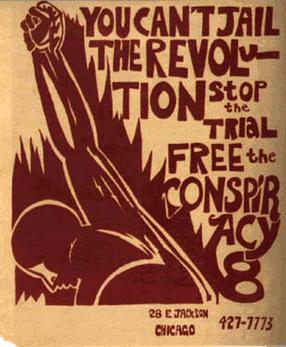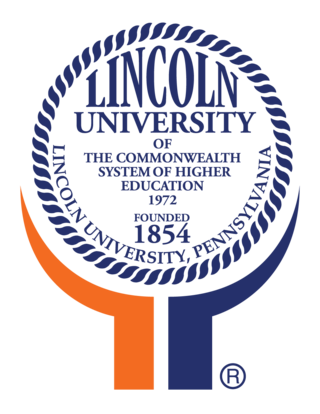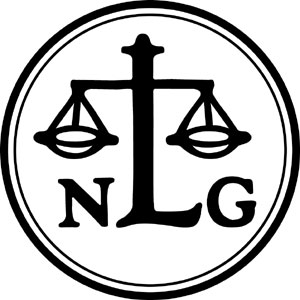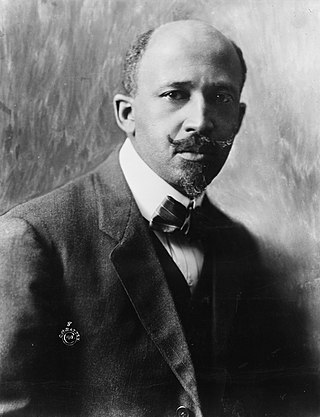
The Chicago Seven, originally the Chicago Eight and also known as the Conspiracy Eight or Conspiracy Seven, were seven defendants – Rennie Davis, David Dellinger, John Froines, Tom Hayden, Abbie Hoffman, Jerry Rubin, and Lee Weiner – charged by the United States Department of Justice with conspiracy, crossing state lines with intent to incite a riot, and other charges related to anti-Vietnam War and 1960s counterculture protests in Chicago, Illinois during the 1968 Democratic National Convention. The Chicago Eight became the Chicago Seven after the case against codefendant Bobby Seale was declared a mistrial.

Lincoln University (LU) is a public state-related historically black university (HBCU) near Oxford, Pennsylvania. Founded as the private Ashmun Institute in 1854, it has been a public institution since 1972 and is the second HBCU in the state, after Cheyney University of Pennsylvania. Lincoln is also recognized as the first college-degree granting HBCU in the country. Its main campus is located on 422 acres (170.8 ha) near the town of Oxford in southern Chester County, Pennsylvania. The university has a second location in the University City area of Philadelphia. Lincoln University provides undergraduate and graduate coursework to approximately 2,000 students. It is a member-school of the Thurgood Marshall College Fund.

The National Lawyers Guild (NLG) is a progressive public interest association of lawyers, law students, paralegals, jailhouse lawyers, law collective members, and other activist legal workers, in the United States. The group was founded in 1937 as an alternative to the American Bar Association (ABA) in protest of that organization's then exclusionary membership practices and conservative political orientation. They were the first predominantly white US bar association to allow the admission of minorities to their ranks. The group sought to bring more lawyers closer to the labor movement and progressive political activities, to support and encourage lawyers otherwise "isolated and discouraged," and to help create a "united front" against Fascism.
The American Crusade Against Lynching (ACAL) was an organization created in 1946 and headed by Paul Robeson, dedicated to eliminating lynching in the United States. A strong advocate of the Civil Rights Movement, Robeson believed "a fraternity must be established in which success and achievement are recognized and those deserving receive the respect, honor and dignity due them." In his speech "The New Idealism", delivered as a Rutgers College valedictory address, Robeson supported the idea that all – both colored and white people – need to take part in the creation of the new "American Idealism"; which led to the development of the American Crusade Against Lynching.
The Civil Rights Congress (CRC) was a United States civil rights organization, formed in 1946 at a national conference for radicals and disbanded in 1956. It succeeded the International Labor Defense, the National Federation for Constitutional Liberties, and the National Negro Congress, serving as a defense organization. Beginning about 1948, it became involved in representing African Americans sentenced to death and other highly prominent cases, in part to highlight racial injustice in the United States. After Rosa Lee Ingram and her two teenage sons were sentenced in Georgia, the CRC conducted a national appeals campaign on their behalf, their first for African Americans.

William Lorenzo Patterson was an African-American leader in the Communist Party USA and head of the International Labor Defense, a group that offered legal representation to communists, trade unionists, and African Americans in cases involving issues of political or racial persecution.

We Charge Genocide is a paper accusing the United States government of genocide based on the UN Genocide Convention. This paper was written by the Civil Rights Congress (CRC) and presented to the United Nations at meetings in Paris in December 1951.
The Rosenwald Fund was established in 1917 by Julius Rosenwald and his family for "the well-being of mankind." Rosenwald became part-owner of Sears, Roebuck and Company in 1895, serving as its president from 1908 to 1922, and chairman of its board of directors until his death in 1932.
In African-American history, the National Negro Congress was an African-American organization formed in 1936 at Howard University as a broadly based coalition organization with the goal of fighting for Black liberation; it subsumed the League of Struggle for Negro Rights. Although an idea which came out of the American Communist Party, the Congress organization and model stressed broad coalition of different ideologies and groups in "an unprecedented confluence of civic, civil rights, labor, and religious groups from across the nation," united, not by any theory, but for practical advances in African American civil and employment rights.
Victor Rabinowitz was a 20th-century American lawyer known for representing high-profile dissidents and causes.

Frank Marshall Davis was an American journalist, poet, political and labor movement activist, and businessman.

During the ten decades since its establishment in 1919, the Communist Party USA produced or inspired a vast array of newspapers and magazines in the English language.
The Chicago Star was a weekly publication, founded in 1946 and financed by Trade unions. The board of directors were Ernest De Maio, Frank Marshall Davis, William L. Patterson, Grant Oakes, and William Sennett. Davis was the executive editor, Sennett the general manager, and Carl Hirsch managing editor. Howard Fast was a columnist, and Rockwell Kent a contributing editor. In an introduction to a book about Davis, John Edgar Tidwell indicated that the first issue was launched on July 4th to "[wrap] itself in the holiday's symbolic meaning." The paper carried Davis's weekly editorial "Frank-ly Speaking".
The California Labor School was an educational organization in San Francisco from 1942 to 1957. Like the contemporary Jefferson School of Social Science and the New York Workers School, it represented the "transformed and upgraded" successors of the "workers schools" of the 1920s and 1930s.
The National Federation for Constitutional Liberties (NFCL) was a civil rights advocacy group made up from a broad range of people.
Joseph R. Brodsky, often known as Joseph Brodsky and Joe Brodsky, was an early 20th-century American civil rights lawyer, political activist, general counsel of the International Labor Defense (ILD), co-founder of the International Juridical Association (IJA), member of ILD defense team for members of the Scottsboro Boys Case of the 1930s, and general counsel for the International Workers Order (IWO).

Ferdinand Smith was a Jamaican-born Communist labor activist. A prominent activist in the United States and the West Indies, Smith co-founded the National Maritime Union with Joseph Curran and M. Hedley Stone. By 1948 he was wanted by the U.S. Immigration Service for deportation, and is remembered as one of the most powerful black labor leaders in U.S. history.
American Committee for the Protection of Foreign Born was the successor group to the National Council for the Protection of the Foreign Born and its successor, seen by the US federal government as subversive for "protecting foreign Communists who come to this country," thus "enabling them to operate here.".